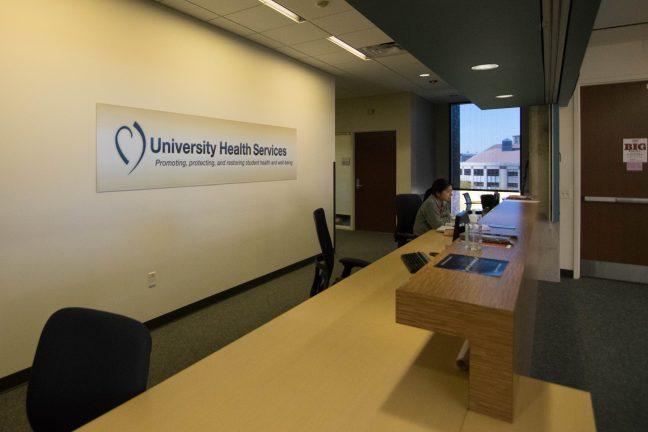University Health Services Director of Mental Health Services Dr. Sarah Nolan brought attention to increased mental health issues on campus and discussed collective care approaches for addressing campus needs in a presentation Thursday.
Hosted by the Graduate School Office of Professional Development, Nolan presented “Collective Care: The Future of Well-Being for Our Campus Community.” With rising rates of mental health distress amid both graduate and undergraduate students, the presentation provided comprehensive care approaches to combat this issue.
“We really need to kind of reconsider how we address mental health, what we think of as mental health, what we think of as mental health prevention and treatment, and it really, really matters,” Nolan said.
Currently, mental health distress is reaching all individuals in many different ways, ranging from high school students to adults. New data reveals that high school students are affected by mental health at higher rates than ever before. It’s important to look at pre-college students as they will transition into college with those same issues, Nolan said.
It’s also important to note that there has been a significant increase of needs from college students for counseling centers over the last 15 years, she said.
To address student and campus needs, UHS must think outside the box when approaching mental health and wellbeing. Assessing collective responsibility should be at the core of establishing a society that promotes mental health and well-being, Nolan said.
“If we don’t value collective responsibility, then it’s really hard for us to kind of move forward in building a world where we take care of each other and a world that helps take care of us,” Nolan said.
The pandemic brought an increased attention to this public health crisis and as a result, Nolan and her team have looked for ways to provide services for the community known as collective care.
Collective care is based on activism and radical thinking to build a world and community where wellbeing is the shared responsibility of a group rather than one individual’s responsibility, Nolan said.
One way Nolan plans to implement collective care is through institutionalizing wellbeing programs that are community-building and connection-building, with the exception that these programs aren’t considered extra work. Additionally, she wants to create peer, faculty and staff ambassador mental health programs to equip and support students with the services they need.
Through this comprehensive care, students, faculty and staff will learn skills that allow them to be good community members for each other, Nolan said.
This presentation laid out the groundwork for the collective care vision and allowed a better understanding of how the University of Wisconsin is addressing campus needs in terms of mental health. There are various other practices of this care that will be implemented throughout campus in order to combat the mental health crisis.
“I do think there’s a lot of energy for this, and from where I sit on this campus, I feel excited about the future,” Nolan said.


